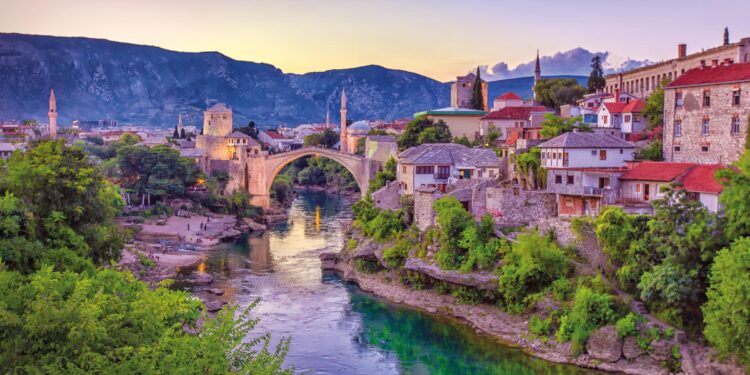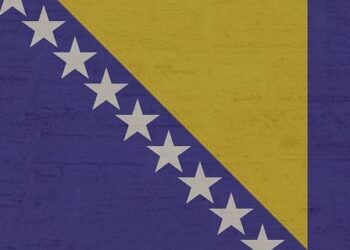Introduction
In Bosnia and Herzegovina, the echoes of a troubled past are resurfacing, prompting concerns about the potential for renewed large-scale violence. The United States Holocaust Memorial Museum has recently highlighted these growing threats, drawing attention to the fragile stability in a region still grappling with its past wounds. As political tensions escalate and ethnic divisions become more pronounced, experts warn that without swift international intervention and a commitment to upholding human rights, the specter of genocide may loom once again over the Balkans. This article explores these alarming trends, their implications for regional stability, and the critical role that global awareness plays in preventing a repeat of historical atrocities.
Rising Ethnic Nationalism Threatens Peace in Bosnia and Herzegovina
Recent developments indicate that an upsurge in ethnic nationalism is heightening tensions among Bosnia and Herzegovina’s three main groups: the Bosniaks, Serbs, and Croats.Political figures are leveraging historical grievances to strengthen their power while many citizens feel increasingly marginalized. This rise in divisive rhetoric combined with discriminatory practices has sparked protests and violent clashes, fostering an habitat rife with fear and hostility.The bonds within local communities are deteriorating rapidly, raising alarms about potential conflicts that could threaten the delicate peace established by the Dayton Accords.
The worsening situation underscores deep-rooted societal issues:
- Pervasive Political Manipulation: Leaders exploit ethnic differences to garner support.
- Cumulative Historical Resentments: Shared memories from previous conflicts are weaponized to fuel division.
- Deteriorating Economic Conditions: Rising unemployment fosters desperation among citizens.
- Dwindling International Engagement:A decrease in global interest results in inadequate support for peace initiatives.
Recurring Aggression Patterns Signal Potential Crises Ahead
The unsettling resurgence of historical aggression patterns within Bosnia and Herzegovina serves as a foreboding sign for possible future crises. Recent assessments reveal troubling trends where entrenched ethnic tensions‚ÄĒexacerbated by political maneuvering‚ÄĒare beginning to mirror conditions reminiscent of those preceding catastrophic events during the 1990s. Key contributing factors include:
- Narrow Nationalistic Rhetoric: Politicians often invoke past injustices to rally support while deepening societal divides.
- Erosion of Institutional Integrity: Weaknesses within judicial systems hinder accountability efforts allowing hate-driven actions go unpunished.
- Ethnic Segregation: Communities are becoming increasingly isolated along ethnic lines which reduces opportunities for dialogue.
Additionally , international analysts warn that current geopolitical dynamics coupled with economic despair heighten risks associated with violence . Systematic disinformation campaigns further deepen distrust among communities . A closer examination reveals concerning statistics :
Year Incident Fatalities 1992 Sarajevo Siege Over 11 ,000 1995 Srebrenica Massacre Around 8 ,000 2021 Bijeljina Ethnic Violence 3 This data starkly illustrates how precarious peace remains in this region . As global observers monitor closely , it becomes crucial both local authorities and also international stakeholders not only recognize but also actively address these patterns before they spiral out control into another cycle violence .
Urgent Actions Needed To Prevent Escalation And Support Vulnerable Groups
The unfolding circumstances within Bosnia & Herzegovina demand immediate action given rising tensions alongside fears surrounding potential mass atrocities looming large on horizon.Authorities must undertake decisive measures aimed at curbing hostilities threatening regional stability including :
- International Oversight : Establish robust monitoring mechanisms ensuring adherence agreements protecting civilians.
- Humanitarian Assistance : Enhance delivery aid vulnerable populations guaranteeing access essential resources support .
- Lawsuit Accountability: Strengthen mechanisms hold accountable individuals responsible inciting hatred violence.
Additonally civil society organizations should be empowered engage communities through grassroots initiatives promoting trust resilience diverse populations . Local action recommendations include :
<tbody <
<tr <
<th Action< th <
<th Description< th <
< tr<
<tr<
<td Community Workshops
Organize workshops promoting tolerance intercultural dialogue.Youth Engagement Develop programs empowering youth participate civic activities.
Emergency Response Training Provide training local leaders emergency response conflict resolution.ADVERTISEMENT - Humanitarian Assistance : Enhance delivery aid vulnerable populations guaranteeing access essential resources support .













